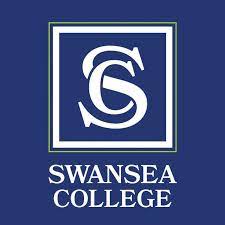Our GCSE Physics online course, you’ll take a close look at different forms of energy, and the ways in which they’re stored and transferred. You’ll gain an understanding of how the particles that form the world around us are structured, and how they interact with one another.
Our GCSE Physics online course is enhanced with lessons with a bank of resources, interactive tests and activities. The course focuses on strands of learning within the curriculum to improve progression throughout, offering a seamless progression.
We provide learning resources that focus on assessment objectives and are organised by topic, allowing you to use them alongside our scheme of work.
Our online interactive course goes above and beyond to ensure student progress and understanding.
Here’s what we offer:
- A complete coverage of the course specifications, accompanied by a list of learning objectives and mind maps.
- Engaging weekly learning videos that help students build, apply, and review their understanding.
- Interactive power points, worksheets, homework, and mark schemes to solidify understanding of key concepts.
- Regular assessments every 6 weeks to track progress.
- Mock assessments with detailed feedback to help students prepare effectively.
STUDY OPTIONS AND FEES
Course Structure:
- an engaging online interactive learning course
- weekly learning videos
- variety of learning materials: video lessons, power points, e Textbooks, mindmaps, worksheets and homework along with mark schemes (self-marking)
- 6 key assessments
- 2 mock assessments
- feedback provided after each key assessment and mock assessment
- comprehensive revision and exam preparation lessons
- drop in support session every 2 weeks during term time
- enrolment: September and January although students have the flexibility to enrol at any time throughout the year.
Additionally students have the option to;
Course Fees
One year course £549
Two year course Year 1: £549
Year 2: £235
The cost of the GCSE Physics course is £495 for a one-year course. However, we also offer the option to study the course over two years. In this case, you would pay the one-year course fee upfront, and then top it up with an additional fee of £235 in the second year.
While the course officially starts on September 1st, you have the flexibility to join at any time throughout the year.
Payment Options
We have introduced our new payment plan, which will provide you with the flexibility to spread out your payments over a period of 6 months.
How to Apply?
To apply for our Online GCSE course, please follow these steps if you haven’t already:
2. Send us a scanned, coloured copy of your passport or official photo ID
3. Pay the application fee of £200. This fee comprises an £80 enrolment fee and £120 towards the course fee. Please note that the application fee is non-refundable.
Register for your exams
Registering to sit your exams with us at Swansea College is easy and straightforward. All you need to do is fill out the
online registration form, which can be found on our
website.
COURSE CONTENTS
Syllabus
GCSE Physics is a comprehensive course that covers all the topics and materials necessary for GCSE Students can choose to sit the exam board of their choice, such as WJEC, AQA, Pearson or
Cambridge International. All topics are covered; however the order of topics and which topics are
covered in each exam paper may vary depending on the exam board. This means that students must
be aware of the differences between the exam boards and be prepared to adjust their study plans
accordingly.
The course is designed to provide students with a thorough understanding of the subject and to prepare them for the exam. With the right preparation and dedication, students can be confident that they will be able to succeed in their GCSE Physics exam.
ASSESSMENTS
Mock Assessment
Throughout the year, students would be required to complete topic tests and key assessments.
These tests and assessments would be designed to assess the student’s understanding of the
material and their ability to apply it.
Students are also expected to complete mock assessments before the Easter break.
The mock assessments would be designed to simulate the actual tests and assessments, allowing
students to practice and become familiar with the format and content. Additionally, the mock
assessments would provide feedback to the students, allowing them to identify areas of
improvement and focus their study / revision accordingly.
Exam
Each exam board has its own subject specification for the exams they offer. Depending on the exam
board you have chosen, you can visit their website and check the subject specification. This will
provide you with detailed information about the topics covered in the exam, the assessment criteria,
and the structure of the exam. It will also provide you with guidance on how to prepare for the exam
and what resources are available to help you. Knowing the subject specification is essential for
success in the exam, so make sure you take the time to read it carefully.

